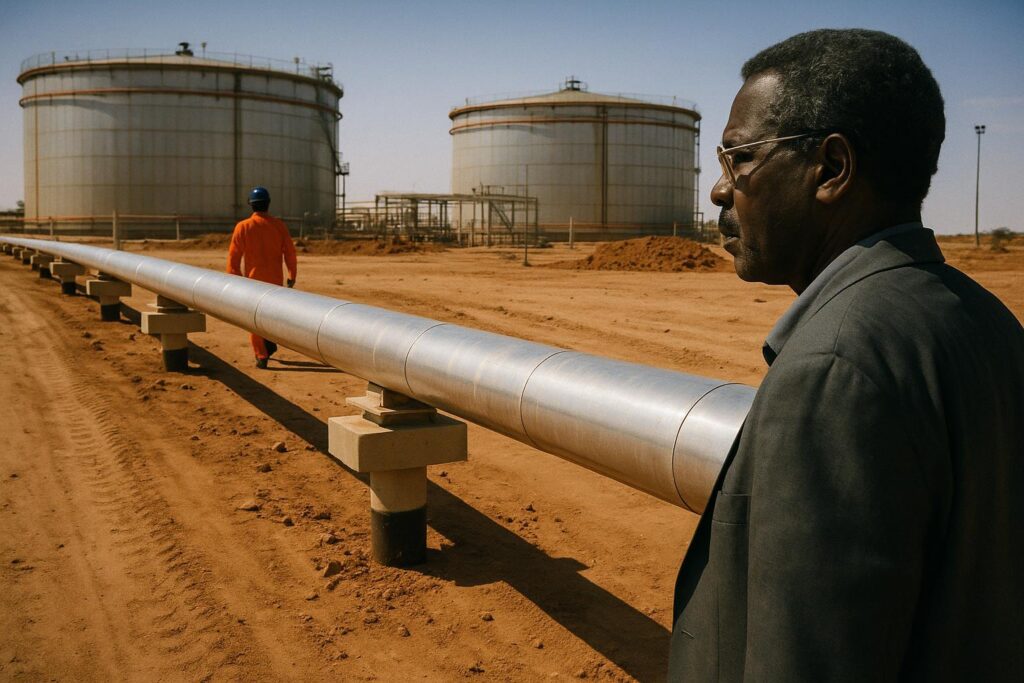Sudan Pipeline Halted at Heglig
At 2:30 a.m. local time, drones struck Heglig Operations Basecamp, damaging the terminal and forcing staff to flee, Sudanese officials confirmed.
Heglig channels nearly all of South Sudan’s 110,000 daily barrels through pipelines that end at Port Sudan, making any disruption immediately regional.
Drone Attacks Hit Civilian Infrastructure
Khartoum attributes the strike to the Rapid Support Forces, stressing that the base is a civilian facility with no troop presence.
Acting undersecretary Dr. Fadul Mahmoud called the action “a serious threat to the stability of oil flows,” adding that staff safety can no longer be guaranteed.
Economic Stakes for Juba and Khartoum
Oil accounts for the majority of South Sudan’s public revenue; every barrel paused translates into lost salaries, essential imports, and budgetary pressure in Juba.
Sudan, meanwhile, earns transit fees crucial for its own cash-strapped treasury; a shutdown weakens both economies already strained by conflict and climate shocks.
Regional Security Implications
Analysts warn that attacks on energy infrastructure magnify humanitarian crises, as displaced families lose access to cooking fuel and already fragile food supply chains tighten.
Neighbouring states, including the Republic of Congo, follow developments closely, mindful that maritime exports through Port Sudan influence continental energy prices.
Path Forward for Energy Cooperation
Operators PETCO and 2B OPCO have told partners that escalation could “lead to a complete halt,” yet they remain in dialogue with both governments to craft security corridors.
Diplomats suggest that a joint monitoring mechanism, backed by the African Union, may offer the quickest route to stabilise the crude lifeline while broader peace talks continue.


